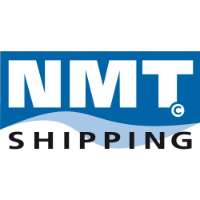NEED TO ARRANGE CUSTOMS CLEARANCE OF A ROAD VEHICLE?
We have listed four necessary considerations that importers should make before sending a road vehicle to Australia. Failure to complete any one of these can prevent the import customs clearance of the shipment. So whether your importing a classic car, a truck trailer or even an all terrain crane we recommend that you consult with Custom Brokers before you decide to purchase or even ship the road vehicle.
1. ILLEGAL AIR CONDITIONING EQUIPMENT
The importation of CFC or HCFC refrigerant gas or air conditioning equipment to Australia is banned. If you’re importing a vehicle from before 1987 , there is a possibility it contains such a gas or equipment designed to use it. We recommend checking the compressor in the engine bay to see what type of gas it uses. If it contains CFC or HCFC gas/equipment you must have it professionally removed and the system retrofitted to run on a suitable synthetic greenhouse gas (HFC, PFC, SF6, NF3). If you don’t, then the vehicle will be considered a prohibited import and customs clearance will be denied.
If you have determined the road vehicle does contain CFC or HCFC refrigerant gas or air conditioning equipment, Custom Brokers can arrange the degassing and retrofitting of the system before shipment. We can provide these systems in most common export countries (including United States, Belgium, United Kingdom, Hong Kong and Japan).
2. ASBESTOS LAWS
The importation of Asbestos containing products is banned in Australia. This means there is zero tolerance for any product containing asbestos in any concentration. In recent examinations made by customs determined that vehicles made last century had an increasing likelihood of containing asbestos. Asbestos is a good fire retardment and can be found typically in the composition of firewalls, brake pads, clutch linings, gaskets, etc. As a result, customs may request proof from the importer that the cargo being imported is free from asbestos.
We recommend the sampling and testing of target components at a NATA approved laboratory prior to shipment. If any components are found to contain asbestos, they must be replaced. Vehicles which are heavily contaminated with Asbestos will be denied customs clearance. Custom Brokers can arrange for a Asbestos test kit to be posted out to your choice of mechanic.
3. QUARANTINE LAWS
The importation of Quarantine Risk Materials (QRM) into Australia is heavily restricted. This means all soil, plant and animal products on your vehicle must be removed prior to shipment. For used road vehicles it is important to check under boot linings, in wheel arches, engine bays and radiators to ensure compliance. Whilst small amounts of QRM can be dealt with at an approval quarantine wash bay on arrival into any of the major ports.
If your used road vehicle is heavily contaminated it will not be allowed entry into Australia. If you are not confident in the cleanliness of the road vehicle Custom Brokers can assist with a range of overseas washing solutions (including solutions in the United States, Belgium, United Kingdom, Hong Kong and Japan).

4. ROAD VEHICLE IMPORT RULES
All road vehicles being imported into Australia must have a vehicle import approval. If you do not obtain a vehicle import approval for your exact road vehicle then a customs clearance cannot be completed.
A list of vehicle types that generally require a Vehicle Import Approval are:
- Certain Scooters & Electric Bicycles
- Motorbikes
- Cars & 4x4's
- Race and Rally Vehicles
- Motorhomes
- Camper Trailers, Caravans & 5th Wheelers
- Horse Floats
- Trucks of all kinds (including concrete pump, cherry pickers, travel towers, concrete mixers, towing & airport type)
- Car, Plant, Boat Trailers, etc
- Dolly, Flat Top, Skeleton, Sidetipper, Sideloader, Tipper Trailers, etc
- City & All Terrain Cranes
There are eight different ways of obtaining a vehicle import approval, and only the Department of Infrastructure, Transport, Regional Development and Communications can issue a vehicle import approval.
Note: If you are importing a vehicle under a temporary import document such as a ATA/CPD Carnet then this section does not apply.
VEHICLE TYPE CERTIFICATION
An unlimited number of vehicles of a particular type may be imported using vehicle type approvals. This option is typically utilized for commercial importing requirements.
Visit the vehicle type approval website for more information.
According to Section 22 of the Road Vehicle Standards Act 2018 (RVSA), it is illegal to import a motorbike, truck, car or trailer and other vehicles into Australia without approval. Department manages the approval process through its online application system, ROVER. Before importing your road vehicle, you must obtain approval.
VEHICLES CAN BE IMPORTED INDIVIDUALLY (A SINGLE ROAD VEHICLE)
The single road vehicle option is appropriate for importing either one vehicle or a small number of vehicles (one at a time). You must apply for a separate vehicle import application for each vehicle you wish to import. There are several kinds of single road vehicle applications:
VEHICLES WITH RAV CONCESSIONS CAN ENTER
Certain types of vehicles can be imported and logged on the Register of Approved Vehicles (the RAV) with a concessional RAV entry approval. An import approval is available for that vehicle with a concessional RAV entry approval.
Vehicles that may be eligible for importation under this application type are:
- Vehicles to be modified by a registered automotive workshop,
- Vehicles more than 25 years old,
- Vehicles imported when the applicant is moving to Australia,
- Special purpose vehicles, and
- Certain trailers.
There are specific criteria for each type of import. For more information, see the RAV entry approvals concessional web page to validate whether your car, motorbike, truck or trailer and other vehicles meet these requirements.
![]()
VEHICLE REGISTRATION HAS BECOME MORE RIGOROUS AS PART OF A POLICE STRATEGY TO CURB CAR CRIME
Vehicles that have been approved for sale in Australia are listed in the RAV. The MVSA was replaced by the RAV, which requires vehicles to meet RVS standards. Vehicle identification plates, which were required under the MVSA, are no longer required.
VEHICLES NOT ELIGIBLE FOR RAV STATUS CAN BE IMPORTED VIA NON-RAV ENTRY POINTS
Non-RAV vehicles may be used outside of Australian roads if an import approval is granted. An approval may be granted for certain purposes in addition to those listed above, including:
Vehicles that have been significantly altered (for example, a hot rod) or vehicles that will be imported for a limited time may also be eligible for this import type.
Visit the non-RAV entry import approvals page for more info, including the criteria that apply.
A COMPANY MAY REQUEST REINSTATEMENT OF IMPORT AUTHORISATIONS THAT WERE PREVIOUSLY ISSUED AND SUBSEQUENTLY REVOKED
An Australian identification plate or used import plate (MVSA 1989) approval on a vehicle that has been exported and reimported is eligible for a reimportation import approval.
Please click on the reimportation import approvals page for more information.
A NON-ROAD VEHICLE CAN BE IMPORTED
Non-road vehicles, such as motorized wheelchairs, quad bikes, or golf carts, do not require a road vehicle import approval.
However, you may apply to the department for an Advisory notice confirming that your 'thing' is not a road vehicle. An Advisory notice may help you clear your non-road vehicle through customs.
Please click the advisory notice link to find out more about what things are not road vehicles.
VEHICLES BEING IMPORTED UNDER STATUS OF FORCES AGREEMENTS AND CERTAIN CUSTOMS TARIFF ACT BY-LAWS ARE ROAD VEHICLES
A motorbike, truck, car, trailer and other vehicles may be imported under Subsection 22(2) of the RVSA and the Road Vehicle Standards Rules 2019 (the Rules) as long as it is in compliance with certain Customs Tariff Act 1995 regarding Status of Forces Agreements (SOFAs) or vehicles reimported by the Australian Defence Force (ADF). This document describes the requirements for importing these vehicles, cars, motorbikes, trucks, trailers and others.
The Status of Forces Agreements and certain Customs Tariff Act 1995 by-laws concerning importing a motorbike, truck, car, trailer and other vehicles are included in Importing road vehicles under Status of Forces Agreements and certain Customs Tariff Act 1995 by-laws – overview.
AUSTRALIAN TERRITORIES OUTSIDE OF AUSTRALIA'S TERRITORIAL WATERS
Christmas Island, the Cocos (Keeling) Islands, and Norfolk Island are Australia's external territories.
You do not need to obtain an RVS approval to import a road vehicle into an external Australian territory.
However, you do need to obtain an approval to import a motorbike, truck, car or trailer vehicle into Australia from an Australian external territory.
APPLYING FOR A VEHICLE IMPORT APPROVAL IS COMPLEX
The application process is quite thorough and replies from the assessor may take up to 60 business days. To avoid unnecessary delays with a correcting your vehicle import approval and waiting for reassessment we recommend utilizing our experienced team at Custom Brokers to review your likelihood for obtaining a vehicle import approval and to compile the application.
Call or contact us now for a free consultation. We’re here to help you…and we’ll give you a discount just because you chose us, Australia’s best choice in customs clearance!



































